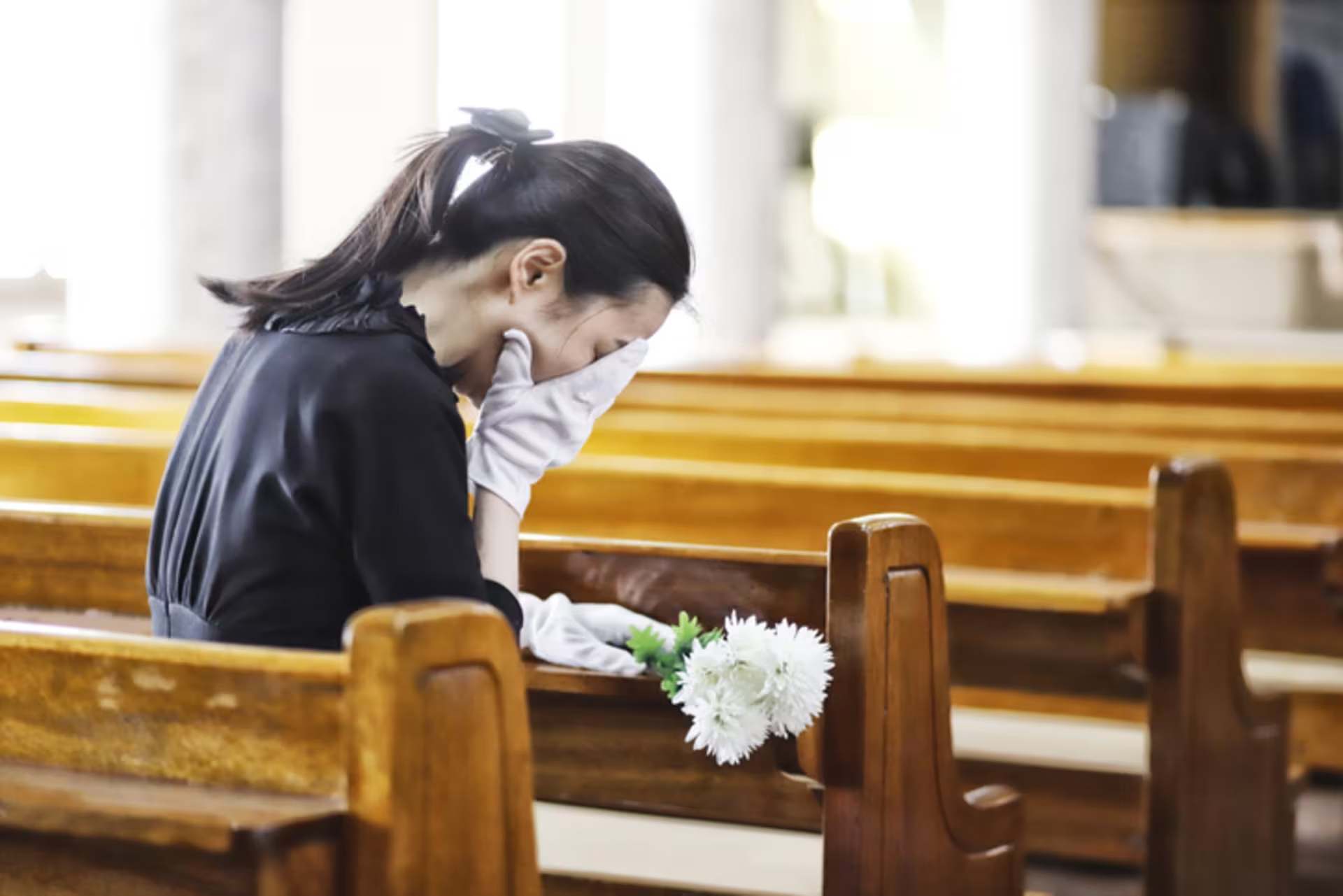In college, you may walk through seasons of pain — loss of a loved one, a breakup, a battle with your mental health, or simply a hard day. Lament prayer is one of many spiritual practices given to us to move toward God in times of pain and suffering to not feel like we are walking through it alone.
In my distress I called to the Lord; I cried to my God for help. From his temple he heard my voice; my cry came before him, into his ears. — Psalm 18:6, NIV
Author Adele Calhoun says, “Tears and prayers of lament won’t solve the problem of suffering, but they can stop the raw nerve of pain by throwing us into the arms of God.”(See disclaimer 1)
Why Prayer of Lament?
Praise be to the God and Father of our Lord Jesus Christ, the Father of compassion and the God of all comfort, who comforts us in all our troubles, so that we can comfort those in any trouble with the comfort we ourselves receive from God. — 2 Corinthians 1:3-4, NIV
A lament is simply a passionate expression of your grief. When we put our laments in the form of prayer, we are giving our sorrows to God and allowing him to hear our cry and carry the burden. When suffering wants to pull you underwater, separate you from God, and drown you in your sorrow, lament is the tide that brings you back to shore.
Here are a few reasons you may consider prayer of lament:
How To Write a Lament
The Lord is close to the brokenhearted and saves those who are crushed in spirit. — Psalm 34:18, NIV
Oftentimes, we do not know what to do with our pain. The world may tell you to bottle it up, play it down, or put on a smile. This is not always a realistic expression of pain. Instead, I invite you to write a lament and offer up your sorrows to the Lord — to the one who is grieving with you, wiping your tears, holding you in his hands, and cares for you so deeply.
Here are five common steps to lament prayer:
- Opening address: Begin your prayer by addressing God by his names and attributes. Talk to him just like you are entering a conversation with a friend.
- Complaint: While a prayer of lament includes your complaint, the prayer itself isn’t just complaining. Glenn Packiam writes, “A lament is an appeal to God based on confidence in his character; a complaint is an accusation against God that maligns his character.”(See disclaimer 2)
- Petition: Make your appeal to God. What are you asking God to do? Where do you need to see him move? Who do you need God to be for you right now? Pray your lament honestly before God.
- Declaration of trust: It can be difficult to trust God in times of darkness, but light enters in when you speak declarations of trust.
- Vow of praise: Praise and adore the Lord for who he is. Thank him for meeting with you in your pain.
Psalms of Lament
But I trust in your unfailing love; my heart rejoices in your salvation. I will sing the Lord’s praise, for he has been good to me. — Psalm 13:5-6, NIV
These five steps come from the book of Psalms. Psalms of lament make up one third of all the Psalms. There are individual lament psalms and community lament psalms. Lean into these Psalms of lament, find your own sorrows written in these Scriptures, and commune with God in your suffering.
Individual Laments
Individual laments give us the words when we may not have any. They are for our personal sufferings. Psalm 3, 4, 5, 7, 9, 10, 13, 14, 17, 22, 25, 26 and 27 are examples.
Community Laments
The Psalmists also wrote psalms of lament in community. These are classified by their focus on expressing deep sorrow for the world’s suffering and asking for God’s blessing and intervention. These include Psalm 12, 44, 58, 60, 74, 79, 80, 83, 85, 89 90, 94, 123, 126 and 129.
Let this be a gentle reminder that amid your pain — when it feels like the world is caving in on you and your hope is scarce — that you have a father waiting for you with open arms. Suffering is real, but it will not hold the last word! There is power in your prayer of lament. Revelation 21:4-5 says, “He will wipe every tear from their eyes. There will be no more death or mourning or crying or pain, for the old order of things has passed away. He who was seated on the throne said, 'I am making everything new!' Then he said, 'Write this down, for these words are trustworthy and true,'" (NIV).
If you desire to learn more about lament or other spiritual practices, consider attending Grand Canyon University’s Spiritual Formation workshops or adding a Spiritual Formation and Discipleship Minor to your degree. Fill out the form on this page to learn more.
Communications Student






